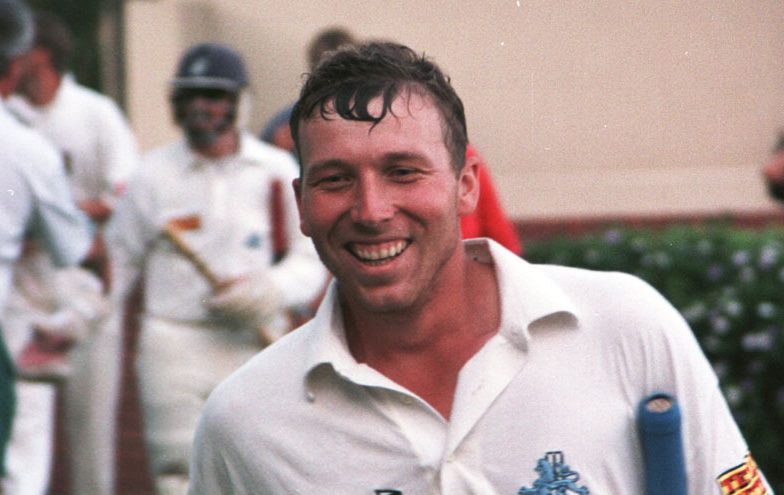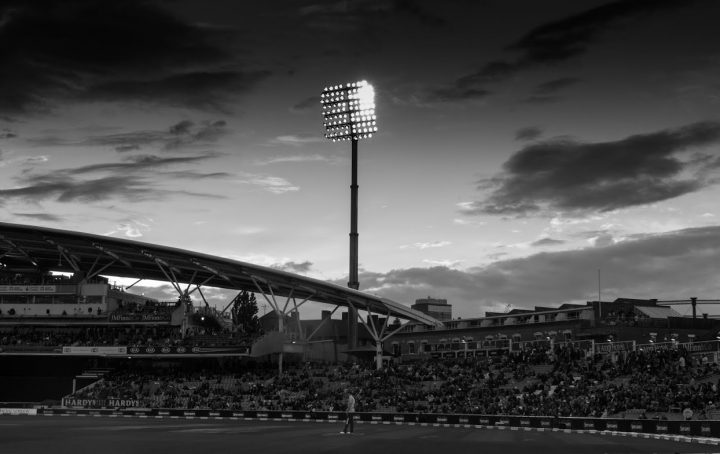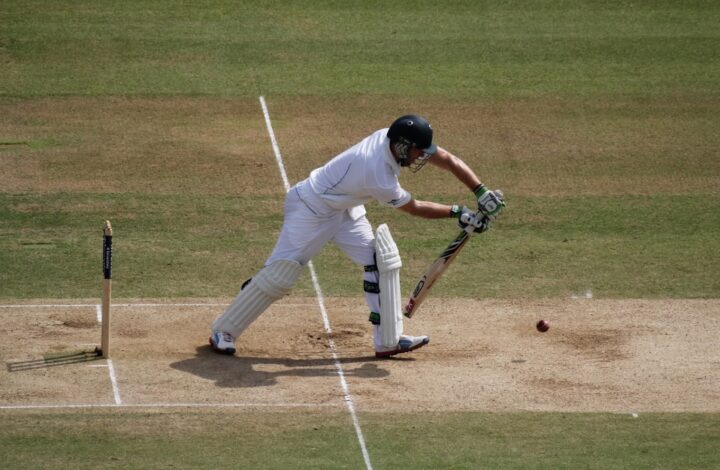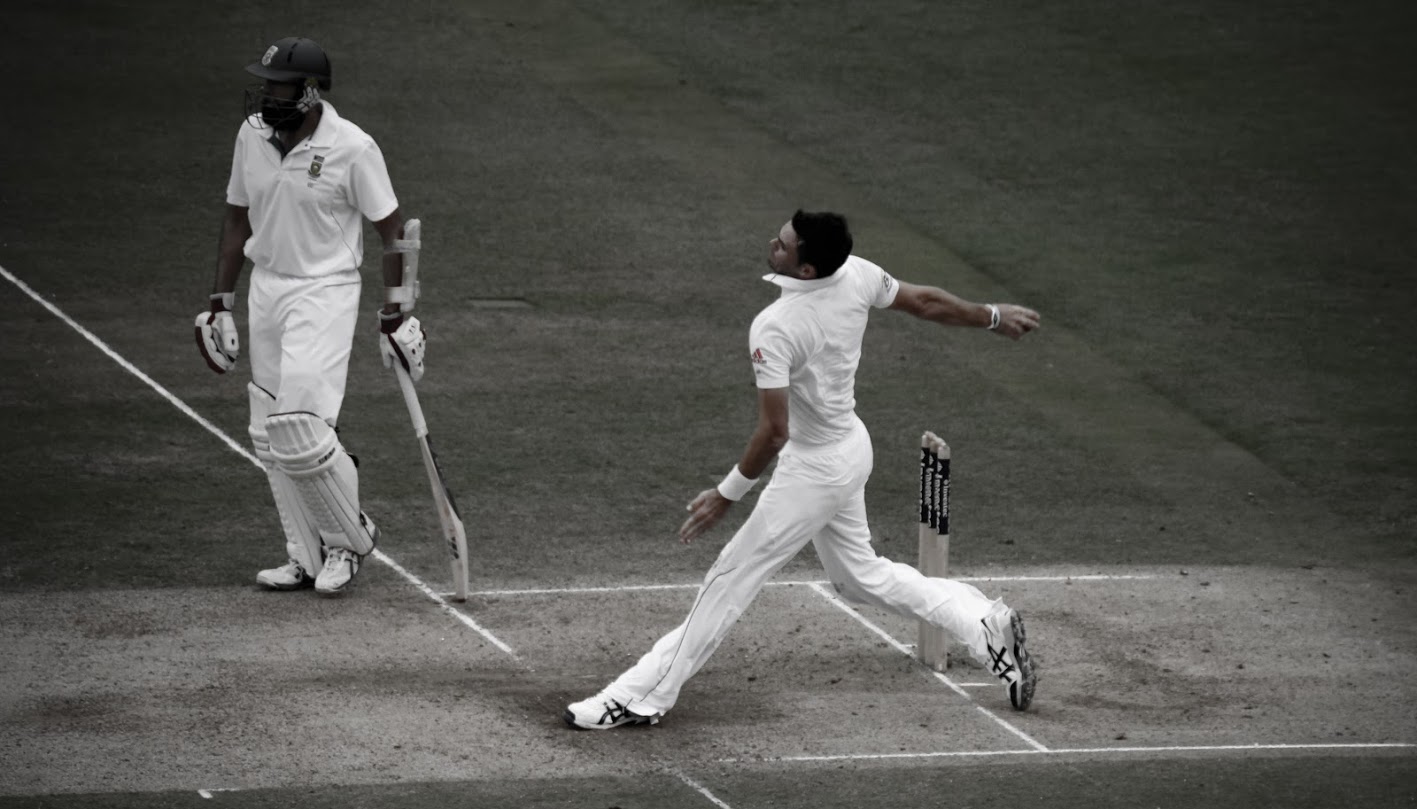Today Billy Crawford returns with the second instalment of his ‘Men Of The Moment’ series. The first put Nasser Hussain in the spotlight for the way he transformed England’s fortunes in 1999/2000. Next up is the heroic Mike Atherton, who won the last of his 115 England caps in 2001. Here’s Billy’s article entitled ‘Mike Atherton: Out Of Time’ …
It ended in a familiar way at the end of the 2001 summer. A thick edge to the slips, dismissed by his old nemesis Glenn McGrath yet again. There was the weary trudge back to the dressing room, the weight of another Ashes series defeat hanging heavy on his shoulders. This time, however, something was different. The Oval rose as one to thank one of English cricket’s great servants for his years of toil. Mike Atherton was always appreciated by his public.
There is one thing more important in life than ability and that is timing. Michael Atherton was blessed with the former but not the latter. Instead he had the misfortune to come along at the worst possible time for aspiring English openers.
English cricket was a mess in the 1990’s. A revolving door selection policy had left many playing for their place rather than the good of the team. Players were thrust in and out of the side at a whim. The introduction of central contracts was still several years away.
This was the era when Mike Atherton was thrust into the captaincy at the age of just 25. When Graham Gooch resigned in the middle of the 1993 Ashes, the young Lancastrian was charged with moulding a disparate band of individuals together into a team. He never quite managed it, although how much of that was down to his leadership style and how much of it was down to the decision makers above him is open to debate.
Athers had been earmarked as a leader since his early days at Cambridge where he earned the nickname FEC, ‘Future England Captain’ – although some suggested the initials may have stood for something slightly less publishable. The way some described England’s performances during the 1990s is equally unpublishable.
However, the prevailing idea of the English cricket team as a national embarrassment during the 1990’s was slightly unfair on Atherton and his men. His England team did match a strong West Indian side stride for stride during a thrilling 2-2 series draw in 1995. They were also the only England side, apart from Andrew Strauss’ fine team, to win a live Test against Australia for thirty years. The 10 wicket victory over the old enemy in front of a pumped up Edgbaston in 1997 lives long in the memory.

Although it is unarguable that there were many truly dismal performances under the Lancastrian, particularly against Australia, it’s worth remembering that there have been some equally wretched ones since. Even the 2005 Ashes winners were thrashed down under. And the Andy Flower era memorably came to an end with the surgical evisceration administered by Mitchell Johnson in 2013-14.
Atherton’s timing was also unfortunate as a batsman. The 1990’s was a golden era for fast bowling and there were no easy pickings. These days, most cricket fans would struggle to name more than five world class fast bowlers in the whole game. In Atherton’s day, every side seemed to have at least two. Indeed, it may be a provocative argument but one could argue that “Iron Mike” the equal of Sir Alistair Cook talent-wise.
Cook’s batting credentials are beyond question but one wonders if his runs would’ve been so plentiful against the likes of Ambrose and Walsh, Wasim and Waqar, McGrath (and Warn), and Donald and Pollock. Equally, it is likely that Atherton would’ve made hay against the more recent crop of bowlers and ended his career with a much higher batting average than 37.69 – statistics which don’t do him justice.
His finest hour was undoubtedly his 185 not out at Johannesburg in 1995-96. It was the innings that summed him up as a player. He more or less stood alone, with only Jack Russell for support, against one of the finest South African attacks our game has seen. It also seemed perfectly Atherton because the innings achieved a draw rather than a win.
This is the abiding image we have of Athers – a stoic captain, standing alone on the deck of a sinking ship. The iceberg, usually an Australian one, has been struck, his trusty lieutenants and crew have fled, and the captain stands firm, trying to hold back the inevitable.
Perhaps this is the epitaph he would want. After all, cussed determination was always his hallmark.
I believe, however, that another tribute would be more fitting: Mike Atherton, English cricket great. Born out of time.
Billy Crawford








You have exaggerated Edgbaston 1997 – it was ten years since Gatting’s England had won their ashes clinching victory at Melbourne and eight before Vaughan’s side won at Edgbaston and Trent Bridge in 2005, so it was actually the only victory by England in a live Ashes match in 18 years. And either side of that barren period England were stronger – they Ashes series in 1977, 1978-9, 1981, 1985 and 1986-7 before the long drought and 2005, 2009, 2010-11, 2013 and 2015 after it. The 1995 series against the West Indies was indeed a good effort – that West Indies was stronger than the side of five years later who were well beaten by Hussain’s England, when their batting was brittle and their bowling was carried by 38 year old Courtney Walsh.
Even whether it was the only victory in a live Ashes series depends how strictly you define that. If you mean a victory when England still had a chance of gaining the Ashes, that’s correct. If you mean a victory when England still had a chance to not lose the series–which is how I would generally define a live match–, then Melbourne in 1998 also counts…technically, although I can appreciate why it might not appear so, even without the benefit of hindsight!
Atherton played over half his Tests against teams with great bowling attacks, defined by teams with two bowlers who averaged less than 25 in their careers (28 for spinners given that spinners average three more runs per wicket than seamers in post-WW1 Test history). Only Atherton’s regular partner Alec Stewart had it as difficult. He was also sorely limited by his back condition later in his career.
Atherton is pretty much the only England cricketer I can think of in the last three decades who has not drastically decreased my estimation of him by his activities since retiring.
Just as a quick add-on and for comparison – such highly regarded openers as Gavaskar, Boycott and Cook played fewer than 10% of their Tests against teams with two bowlers averaging under 25.
Pretty telling stats!
And agree that his work since has only burnished his record, which you cant say about many
Thanks Simon – as Oscar says, telling stats! Where do you get the figures from and do you have comparable ones for Gooch ?
I don’t know about born out of his time. We could do with his like now in the test arena. There can be no doubt of his opening credentials and his capacity to think about the game but as to his captaincy one never felt he had a strong enough personality to inspire those around him. He had to rely on his ability to lead by example, not a negligible trait in his case. Nasser would kick ass if the need arose but I never felt Atherton was comfortable with this. The role of opening batsman requires so much concentration on personal performance I’ve never felt it’s the ideal role to combine with captaincy. If you’ve got other issues to do with match tactics or player problems going on in the back of your mind you’ll never be able to put them entirely to one side and get on with own specific role properly.
You need to be a special character, like Brearley to multi-task this way, but his opening credentials were hardly in the same league as Atherton, who’s batting was critical to the side. Brearley was never under the same pressure of expectation, any success he had with the bat was almost a bonus.
A middle order batsman or change bowler seems to me the best captaincy option as their specific roles in the side are less formally structured.
Good points.
Atherton averaged 39 as captain and 36 as just a player. It’s always important that your captain’s form isn’t affected (or is affected in a positive way) by the captaincy. Root’s average has gone way down since being made captain and exactly the same thing happened with Vaughan.
…but not Gooch.
I’m glad that Simon mentioned Atherton’s back. This had a big impact on his abilities as a batsman. I’m sure he would’ve averaged more without this chronic condition which I recall is hereditary.
Atherton’s autobiography is also extremely good if I remember correctly. I think there’s quite a lot about his back condition in there. He really was playing in a lot of pain later in his career and it badly affected his mobility at the crease.
I’ll always remember Athers as a very good player indeed. Gooch was the best opener I’ve seen, followed by Vaughan (when he was a pure opener), and then Athers and Stewart. I’d then put Trescothick and Cook right behind them, followed by Strauss. Boycott was a little bit before my time.
It’s the quality of attacks they faced that makes me respect Athers / Stewart as a partnership and as individuals. I’d take an average of 37 against that plethora of world class quicks they faced (not to mention the amazing spinners who were around back then) over an average of 44 in the last ten years.
Having said that, I think the standard of quicks is improving again in the last couple of years. The likes of Bumrah & Cummins etc are pretty handy. Cook timed his career perfectly!
Excellent opener, fair captain and one of the better post cricket commentators and personalities.
Comments with which I concur wholeheartedly.
I don’t think we ever saw the best of him as captain. Because of the resources available to him, and the consistently high quality of the opposition, England were invariably on the back foot at that time, and he had little off-field support from the hierarchy. Imagine how different his captaincy record might have been had he had Vaughan’s attack at his disposal.
I’ve just been looking at Cric info. I think the quality of opposition he faced can be summed up by the fact that in both his first and last Tests, the sides he played in lost by an innings to an Australian side batting first and scoring over 600 !
The man had so much to contend with during his time with England as captain and player. In addition to the superb international bowling attacks in the 90’s, the dominance of perhaps the greatest Australian cricket team ever, his chronic back condition (I think chronic may even underplay the severity of it), the frustration of seeing two of the most talented cricketers to play for England (Hick and Ramps) consistently fail (ok that might be a frustration of mine), we shouldn’t forget that his tenure as captain coincided with the appointment of Ray Illingworth as “Supremo” Two stubborn Northerners with very different views on the game, selection and abilities of players was never going to work and Illingworth only made things worse by publicly criticizing Malcolm and picking McCague! Of course Athers didn’t help himself with the dirt in the pocket affair but when he scored 99 at Headingley while all that furore was going on we saw someone of huge mental strength and a leader of men by example rather than words, at the relatively tender age of 26!
I agree wholeheartedly with all of that ! Very well expressed if I may say so !